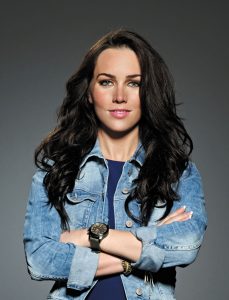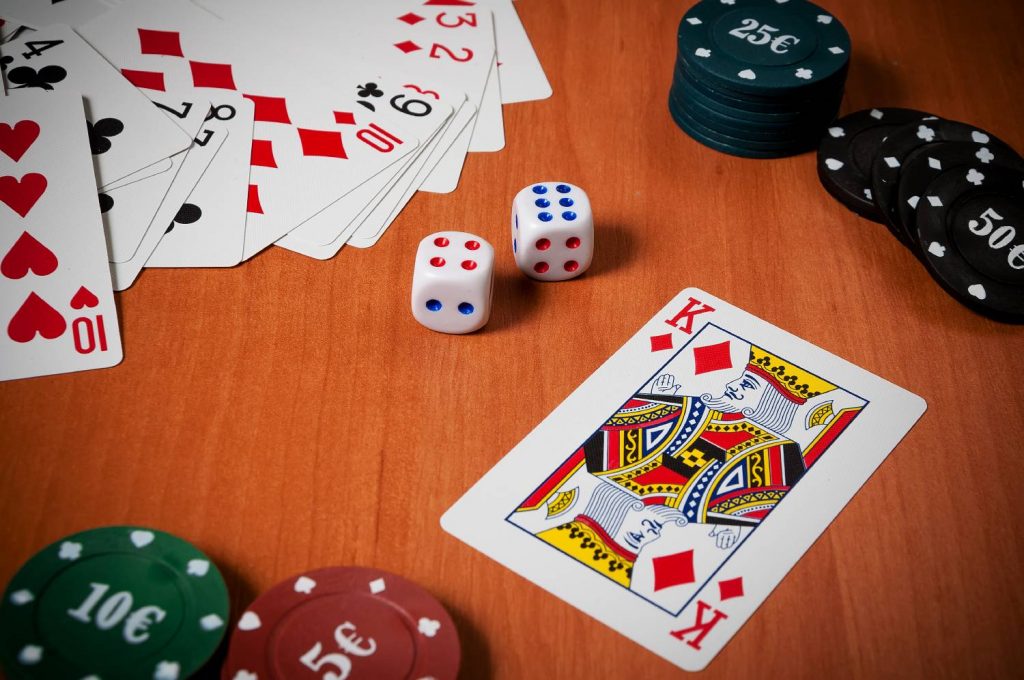Asking questions, assessing risks and making informed decisions – sounds a lot like what we do at SAS, right?

It could also describe what Liv Boeree did as one of the most successful female poker players in the world. In fact, this self-confessed nerd with a first-class degree in astrophysics has asked the tough questions all her life. That’s one reason she was a perfect keynote speaker for SAS Explore, our by-and-for-technologists event geared to people who love to ask questions and dig into the data for answers.
Let’s look at how Liv answered some questions we posed to her – including why she got into the game of poker, her views on risk versus gut feelings, and her take on living life.
Q: Poker is a game of math (at which you’re brilliant). You started out with poker as a way to pay off your student loans. Was it statistical reasoning that made you decide to take that step? Pure impulse? Or something in between?
Liv: It was a mixture of both, I think! Given that I was making more money from poker than I was from an entry-level job, it definitely made financial sense to focus my efforts on playing. But I also deeply enjoyed playing, and on a gut level, I felt like I could and would become a successful player if I persisted with the game.

Q: Along those lines, how do you go about making small, day-to-day decisions? What about longer-term, big decisions? Do you approach different types of decisions in different ways? Do you use some sort of mathematical formula?
Liv: Yes, I typically approach the two categories quite differently.
Generally speaking – small, day-to-day decisions are decisions one has made many times before – which makes them perfect for intuition (or “system 1” type thinking). This is because intuitions generally work best when they have lots of past data to inform them. Conversely, for really big, long-term decisions, I tend to lean more heavily on logic/analysis over intuition. I’ll often do a cost-benefit calculation by estimating the potential gains (and their likelihoods) as well as the potential costs (and their likelihoods).
As I mentioned before, intuitions run the risk of being unreliable in novel situations. So while it can be helpful to check in with your gut when facing a really big and tough decision, it should only be used supplementally – and should certainly not be used as a replacement for proper analysis.
Q: In poker, you’ve said that the longer you play, the less influence luck has. The bigger your sample size, the better the quality of your decisions. How does this concept apply to the way you live your life? (Or does it?)
Liv: Yes – whenever luck is involved, the more you increase the number of decision points you can take, the more you increase the probability of success. Financial investments are a classic example of this. Even if you only make high-expected-value investments, you can end up taking a loss if you only buy two or three. But the more investments you make, the more likely you are to realise that expected value.
Q: I think you must understand the concept of risk at a deeper level than many people. How does your view of risk affect your everyday life? What about your business decisions?
Liv: Hmm, well I expect the main difference is that poker players more easily internally conceptualise the differences between different orders of magnitudes of probabilities like 1%, 0.1%, 0.01%, etc. Because if you play enough hands, you get to viscerally experience low-probability events at the correct frequency.
As such, we tend to be able to conceptualise expected value more accurately. This is perhaps why we often seem to be more concerned about low-probability, high-cost “black swan” events like pandemics and nuclear war than the average person!

Q: How might the world change if people took a deeper look at risk – without being so emotionally involved?
Liv: I would expect us to make far fewer blunders as a species!
Take the pandemic, for example. Overall, I’d give humanity a 3 out of 10 in terms of how well we dealt with it. Even major governments managed to both under- and overreact to risk.
They acted too slowly in the crucial early stages, presumably due to a poor intuitive grasp of exponential growth. And then they were too heavy-handed (or risk-averse) with certain policies. Think about the length of time very low-risk, kindergarten-age children were forced to continue masking in school even after adult mandates were lifted and the costs to their social development clearly outweighed any health benefits.
Neither our intuitions nor emotions are suitably equipped to evaluate ethical dilemmas on the scale of millions or even billions of people that many of our technologies are starting to post.
Our intuitions around risk evolved out of prehistory, when we lived in small groups below the Dunbar number, and only dealt with factors that scaled linearly to one another. In today’s interconnected society, the potential impacts of our technology-fuelled decisions are getting larger. Yet neither our intuitions nor emotions are suitably equipped to evaluate ethical dilemmas on the scale of millions or even billions of people that many of our technologies are starting to post.
As AI safety researcher Eliezer Yudkowsky so eloquently put it, sometimes one has to recognise the useful limits of one’s feelings, and “shut up and do the math.”
Q: You’re a self-confessed nerd (you’d fit right in at SAS, by the way!). Do you have any words of wisdom for other nerds out there in the world of analytics software?
Liv: Ha-ha, I guess the advice I try to live by is to make sure I spend at least half of my waking time unplugged from cyberspace and living in meatspace! It doesn’t matter how good our software is if we haven’t properly maintained the hardware that runs it.
See who else spoke during SAS Explore
